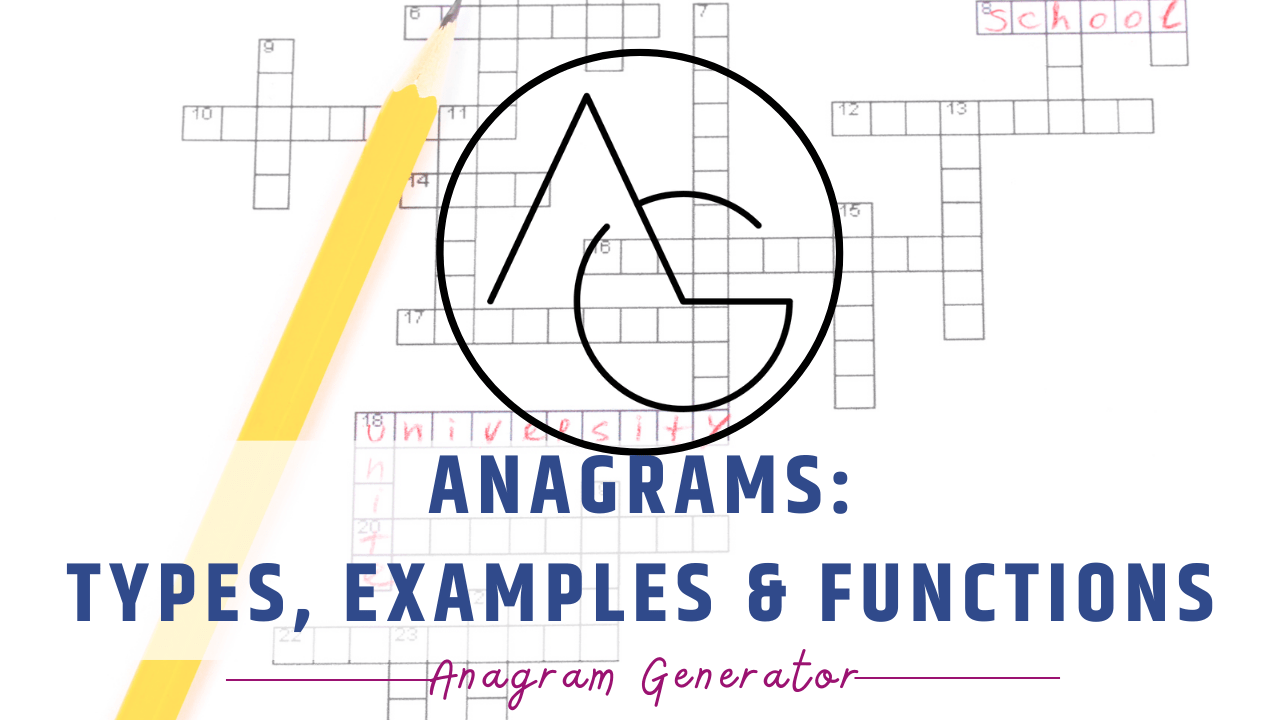You may have heard the word anagram in quiz questions or puzzles or wonder what it is. In an anagram, you can create a new word by scrambling them. Anagram appears in games like Scrabble where we have to create a new word every time. It challenges your brain to think creatively and analytically and forces you to think out of the box. On the other hand, it also improves your vocabulary by discovering new words.
But you know, anagrams have many more types. In this article, we will explain anagram briefly, and explain its types with examples. Let’s dive in and learn together.
What an is anagram exactly?
In simple terms, Anagram is the phrases or terms where we can create a new word by rearranging them. You can arrange them from simple to tough, formal to, funny, or profound to witty.
For example: both “heart” and “earth” come from the same letter. Also, “listen” and “silent”, “care” and “race ”and so on. This makes anagrams.
The History of “Anagram”
Where “ana” means “back” and “gramma” signifies “letter,” the word “anagram” is derived from both of these roots.
Anagrams have been around for a long time; literature from ancient Greece and Latin both have examples of their use.
Anagrams were a common method of encrypting in the Middle Ages when communications could be hidden by rearranging letters in words or phrases. Literary figures of the period often used anagrams, with some even going so far as to use them as pseudonyms.
Anagrams are still utilized in many contexts today, from puzzles and games to advertising. For generations, they have captivated our interest as a remarkable language occurrence.
The Types of Anagrams
Anagrams come in a wide variety of forms, and each has its ruleset. In a nutshell, here are some examples:
1. Simple anagrams
In a simple anagram, one term or phase is mixed with another to create a new one. For example
- “Brag”= “grab”
- “Act” = “cat”
- “Lips”= “slip”
- “Chin” = “inch”
2. Antigrams
in an antigram, the meaning of the original word is different from the other word that was created. For example
- “Silent”= “listen”
- Satin= Santa
- United= untied
In antigrams, we can also create more than syllabuses
- “Misfortune” = “its more fun”
- “Funeral” =“real fun”
- “Violence” = “nice love”
- “Antagonist” =“not against”
3. Multiple Word Anagrams
When the term or word contains more than one syllabus, it is termed a multiple-word or anagram. For example
- “Point”= “on “tip”
- “Revolution= “love to “ruin”
- “Schoolmaster” =“the classroom”
- “Enormity”= “more tiny”
4. Cognate Anagrams
In cognate anagrams, the term word that is created is identical to the original word. For example
- “Enraged” = ”angered”
- “Reward” = ”drawer”
5. Commentary anagram
Commentary anagram is used to mock, parody, or analyze the matter. For example
- Rap music — Is, um… crap
- Adolf Hitler — Heil, old fart!
6. Names
Another typical usage of anagrams is the creation of pseudonyms or complete phrases based on proper names
- Jim Morrison — Mr. Mojo Risin
- Damon Albarn — Dan Abnormal
- “O, Draconian devil!”→Leonardo da Vinci
- “Oh, lame saint!”→The Mona Lisa
7. Palindromic anagram:
the word or term means the same whether we read backward or forward, it is called a palindromic anagram. For example
- Noon
- Redivider
- Maham
- Racecar
Conclusion
When the letters in a word may be rearrangement to form a different word or phrase, we say the word is an anagram. When playing word games offline, players of popular word games like crosswords may use tools like phrase unscrambler or word anagram help to gain the best possible scores. Pseudonym generators like Wordscraper, Scrabulous, and Lexulous are among the numerous word unscrambler services, anagram servers, and anagram makers available today.
Read about Anagrams in literature, movies, and music
